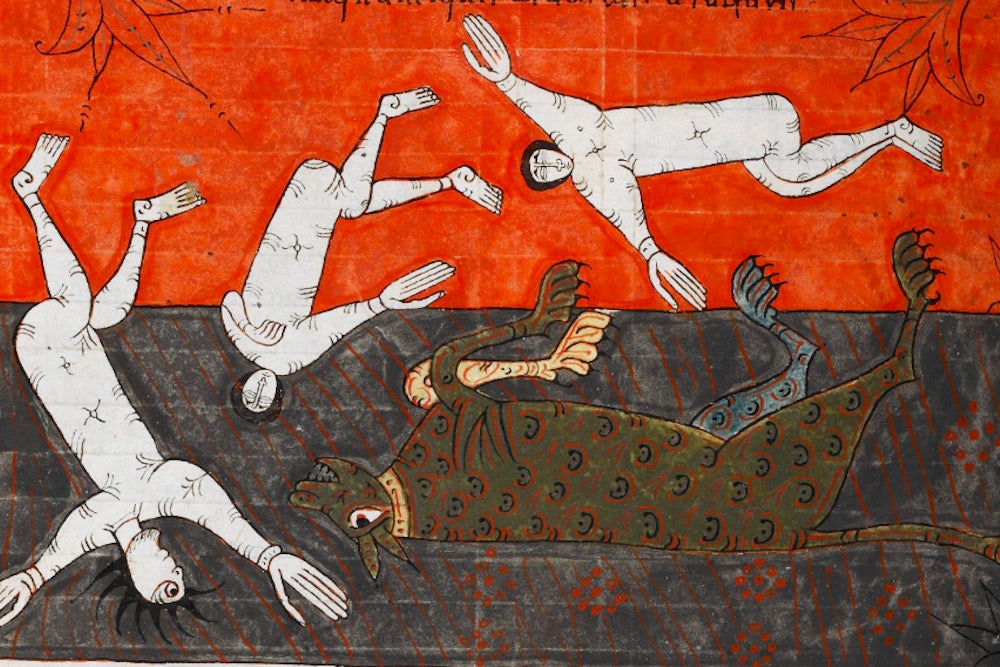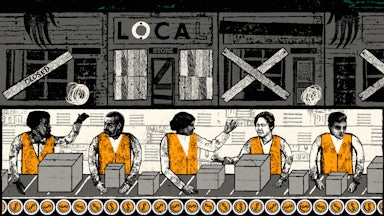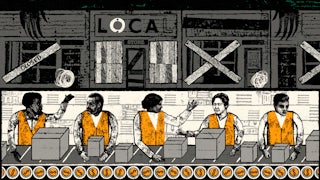This article is adapted from this year’s acceptance speech for the Nona Balakian Citation for Excellence in Reviewing, awarded by the National Book Critics Circle.
It’s such an honor to receive an award named for Nona Balakian, a real dynamo among book review editors, on such a list of nominees, and in such a year. 2020 struck awe into the hearts of men. A new plague took almost 600,000 Americans, and we saw their end-of-life iPads waiting for them on tripods. When police took Black American lives, and we saw that on camera too, it seemed like the whole world stepped outside in solidarity and anger.
In disorienting years like this literature proliferates, in the sense that many people start talking at the same time at complete odds with one other. Plenty of that literature consists not of books but of conversation, correspondence, or arguments. These are the things literary historians look at, because they’re all made of letters, which are the stuff of the present.
A lot of excellent books succeeded, like everything on the National Book Critics Circle’s distinguished list of nominations for this year’s awards, including New Republic poetry editor Cathy Park Hong’s Minor Feelings: An Asian American Reckoning, Danez Smith’s Homie, and many more. Other books, like, say, Robin DiAngelo’s 2018 White Fragility and Jeanine Cummins’s new novel, American Dirt, were among last year’s bestsellers but taught us more through their shortcomings than their good qualities.
This is where book criticism, one of the only surviving formats for pure rhetorical gamesmanship that is still subject to rigorous editorial standards and published by a few truly mainstream publications today, can come in handy. That’s another way of saying that there’s nobody else whose job it is to help you tell the difference.
So I thought I would take this opportunity not to be incisive but complacent for a moment, and congratulate ourselves as a community and as a species on the continued existence of book reviewing.
The upside to living, or at least writing, in a constant state of “emergency” is that we begin to feel that the time for talking may be running out, and so we start to say what we mean a little more. Sometimes that’s a bad thing, depending on the person, but personally I like the explicit over the implicit: I don’t think human beings are really capable of pure honesty, let alone critics, but wild things happen when we give it a try.
As I struggled for something inspiring to say about book criticism here I couldn’t help but think instead about other ends of the world, and their literature.
Wulfstan, for example, was a bishop and statesman in England of the turn of the first millennium A.D., an adviser to King Æthelfred and later to King Cnut—who ousted Æthelred, but that’s a story for another day. He’s renowned in particular for one terrifying homily, the Sermo Lupi ad Anglos, “The Sermon of the Wolf to the People,” a play on his name.
“Leofan men,” it begins, “gecnawað þæt soð is.” “Beloved people! Know that this is the truth.”
“Ðeos worold is on ofste and hit nealæcð þam ende.” “This world is in haste, and it nears its end.”
This word for haste, ofste, suggests that the world is itself in a hurry, and eagerly hurtling toward the apocalypse. Wulfstan goes on to explain that all the nightmares recently visited on people living in Britain, like Viking raids and plague and famine and rape and other vividly invoked disasters, were the fault of the people themselves. Their crimes have caused the bad weather, failed crops, and raised taxes.
Wulfstan also wrote at the border of a new millennium, but his talk of the end of the world is really a way for him to shape the political conversation. Anybody who can command the fear of total and imminent destruction, as the past year has abundantly shown us, has a certain kind of power available to him.
Wulfstan is famous for using no metaphors or similes whatsoever. His most remarkable stylistic trait is repeating two tautological phrases often: “oft & gelome,” meaning “often and frequently,” and “swyþe þearle,” meaning something like “very extremely.”
There’s a word for this style of narrative preaching—homiletic. There’s also an adjective for writings on the end of the world in medieval literature—eschatological. Neither captures the existential luxuriousness of Wulfstan’s style, which has a glorious self-interest to it; a sense of freedom that comes with speaking directly to the now and not to the future, because the future is not going to happen. Wulfstan knew how to write for the end times—just how he pleased.
In this story, of course, I’m the heroic preacher. But every person who takes time out of living through the apocalypse to contemplate it, not only directly but also through the contemplation of others’ contemplations, is like a Wulfstan at the end of the world, lamenting from his lectern, refusing to stop tolling the bell. Even at the very end of our tethers, in this time of every man for himself, we wrap ourselves in layers of language, for no other reason than we want to. Naked self-interest isn’t always so bad.
Before the sermon ends, it’s time to thank everybody within the NBCC, including past members, who have continued to assert in the face of some opposition that racism in general and anti-Blackness specifically are not welcome or useful. You would have thought we were past that, but it turns out we never get past anything. The present moment is all there is.








